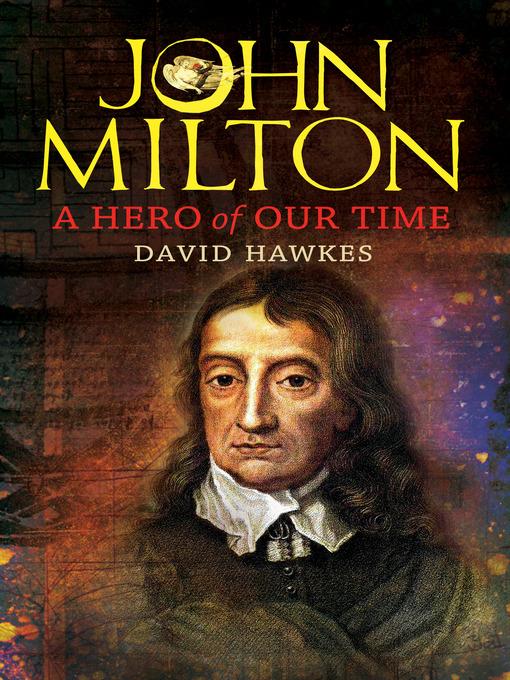
John Milton
A Hero of Our Time
کتاب های مرتبط
- اطلاعات
- نقد و بررسی
- دیدگاه کاربران
نقد و بررسی

Starred review from December 15, 2009
The 400th anniversary of Milton's birth provided Hawkes (English, Arizona State Univ.) the opportunity to reexamine the great poet not only within a 17th-century context but in a 21st-century one, too. During an era of great unrest in England, Milton provoked controversy and debate over his ideas of sex, economics, religion, and political power systems. Thought to be ahead of his time, Milton frequently declared that he was not solely speaking to his contemporaries but to the people of the future. Here, Hawkes examines Milton's iconoclasm and his belief that the worshiping of images of all kinds, both figurative and metaphorical, was destructive. Interweaving historical events of his time, such as the Rump Parliament of 1649, Hawkes illuminates Milton's philosophy via his prose and poetry. Although contemporary readers may disapprove of Milton's beliefshe was in favor of polygamy and believed God picked "chosen ones" to lead the masseshe never made for dull reading. VERDICT Hawkes writes with little academic jargon, and his style is lively and entertaining. Political and religious history enthusiasts will find this excellent and challenging.Susan L. Peters, Univ. of Texas, Galveston
Copyright 2009 Library Journal, LLC Used with permission.

Starred review from December 1, 2009
Popular biographies commemorating Miltons four-hundredth birthday have been scarce, but Hawkes makes up for that paucity and then some in a splendid argument that Milton was so prophetic of modern political and religious predicaments that he should be regarded as our contemporary. Think of Milton as a lifelong iconoclast, Hawkes says, who fought psychological idolatry unceasingly, questioning institutional routines, habitual obedience, hierarchy, and all authority short of God. He suffered for his active intransigence. He lost his sight, alienated his daughters, and endured repeated denunciation. Hawkes pursues the theme of iconoclasm throughout Miltons writing, showing how it accounts for his advocacy of divorce and complete freedom of speech and the press, and cogently refuting the interpretive canard that Satan is the hero of Paradise Lost. Milton understood the difference between reality and representation, not least because his father and he were professional usurers, dealing in that foremost abstract representer, money, but knowing that only God deserves worship. In an age, the present, that has made an idol of money, Milton is more relevant than ever. Hawkes thorough reading of his subject is everything that the new books about Miltons fellow multi-centenarian, Samuel Johnson, are not; to wit, an explanation of why his writing was and continues to be vital.(Reprinted with permission of Booklist, copyright 2009, American Library Association.)

























دیدگاه کاربران